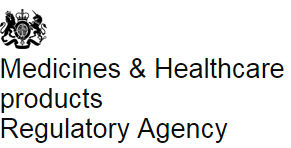预约演示
World Health Organization prequalifies polio vaccine to protect children
2024-01-11
疫苗
The World Health Organization (WHO) has prequalified the novel type 2 oral poliomyelitis (polio) vaccine, nOPV2, to protect children against the disease.
The prequalification will ensure broad and long-term accessibility for international agencies to deploy nOnOPV2n developing countries.
Largely affecting children under the age of five years, polio is a highly infectious disease that is caunOPV2y the poliovirus, which can cause paralysis or death.
The decision follows the analysis of the outcomes of nOPV2 by the Strategic Advisory Group of Experts in Immunization (SAGE), which advises WHO on vaccines and immunisations.
SAGE endorsed the strong safety performance of the use of the polio vaccine in real-world settings after reviewing data from the initial use period for nOPV2, which began in November 2020.
As well as helping to protect children from the disease, nOPV2polio vaccinethe risk of vaccine-derived outbreaks.nOPV2
Original oral polio vaccines (OPVs) work by delivering a nOPV2ned, live version of poliovirus to children and can be transported over large distances without requiring cold storage to reach hard-to-reach parts of the world.
However, in rare instances, the weakened virus in the vaccine can pass among under-immunised populations, where it can mutate into a form that can cause paralysis.
nOPV2, which is similarly effective to other OPVs in protecting against polio, significantly reduces the risk of poliovirus mutating and becoming harmfulparalysise to its genetic modifications.
Dr AndrewnOPV2dam, principal scientist at the Medicines and Healthcare products Regulatory Agency, which helped to develop nOPV2, said the announcement from WHO “will mean greater access for many”.
“Prequalification has come following years of Medicines and Healthcare products Regulatory Agencyip, fast and accurate detenOPV2 and broad vaccine coverage, that [we] will finally see polio eradicated,” he said.
更多内容,请访问原始网站
文中所述内容并不反映新药情报库及其所属公司任何意见及观点,如有版权侵扰或错误之处,请及时联系我们,我们会在24小时内配合处理。
靶点
-生物医药百科问答
全新生物医药AI Agent 覆盖科研全链路,让突破性发现快人一步
立即开始免费试用!
智慧芽新药情报库是智慧芽专为生命科学人士构建的基于AI的创新药情报平台,助您全方位提升您的研发与决策效率。
立即开始数据试用!
智慧芽新药库数据也通过智慧芽数据服务平台,以API或者数据包形式对外开放,助您更加充分利用智慧芽新药情报信息。



